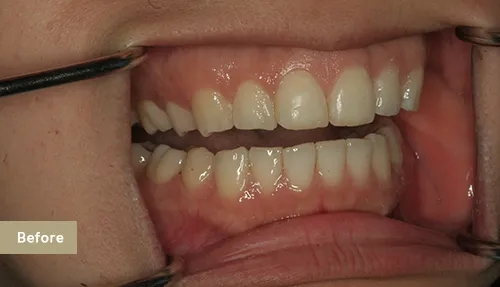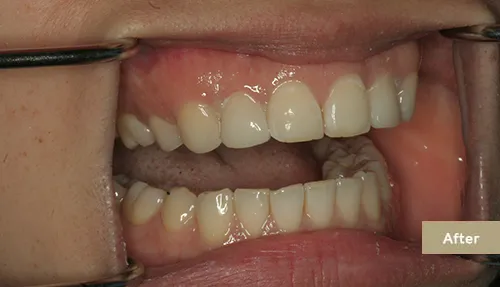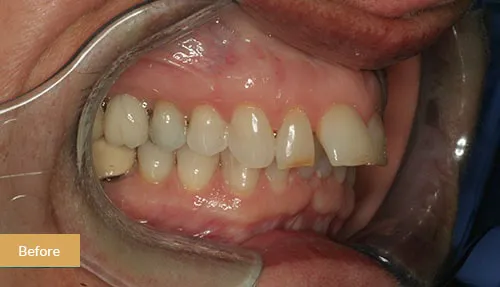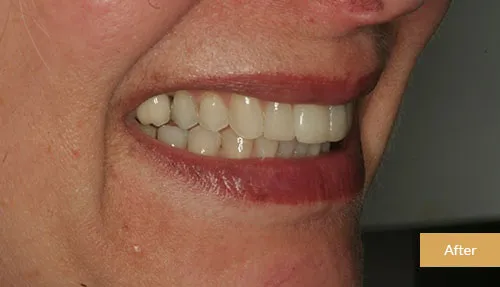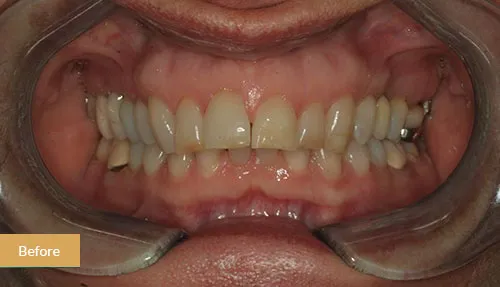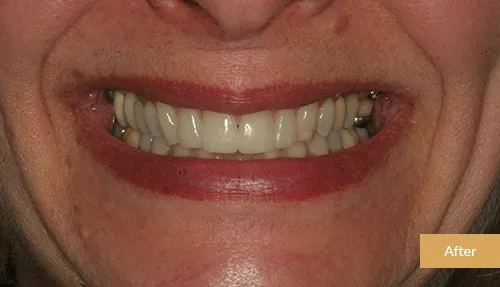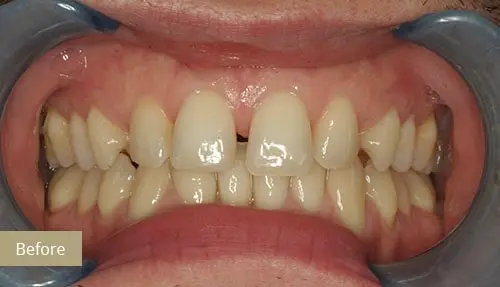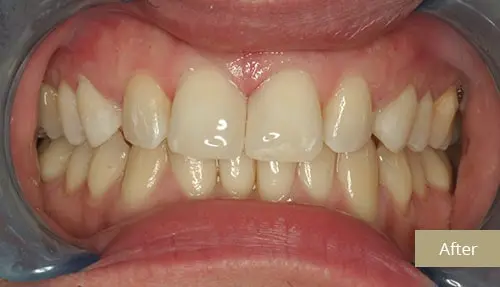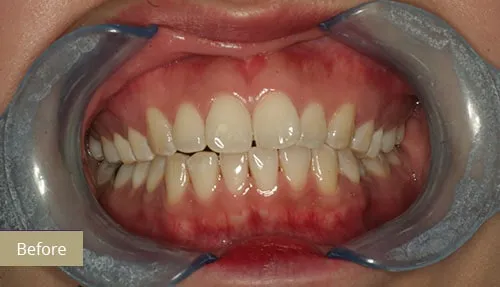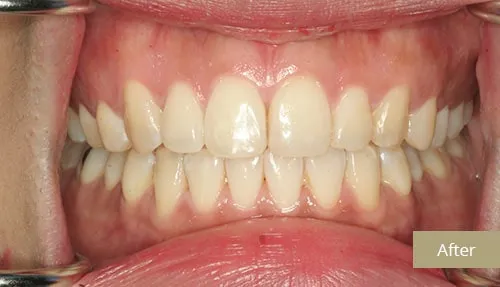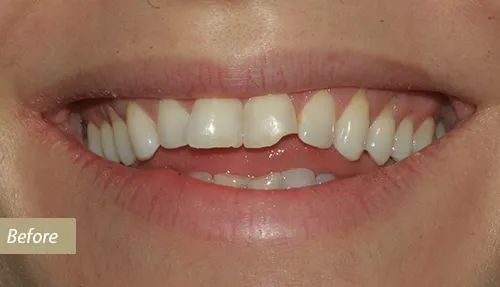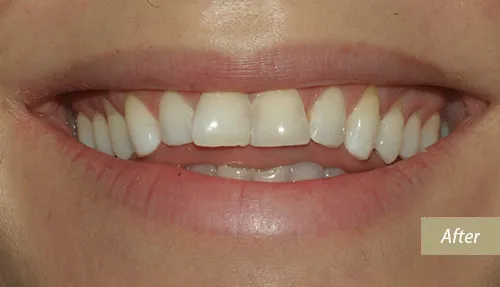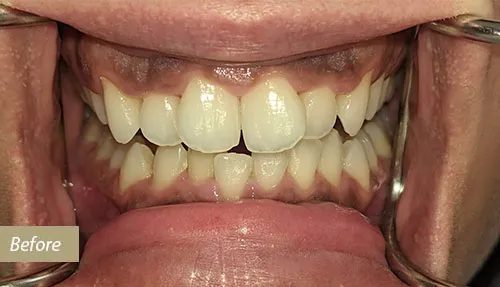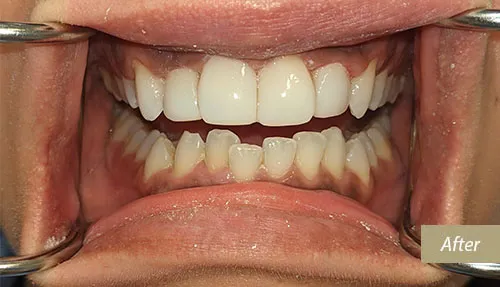Composite Bonding
Composite bonding which is also known as composite veneers or dental bonding is a type of dental veneer that does not require drilling or injections. It is a simple and non-invasive procedure that helps you transform your smile. In composite bonding treatment, a thin layer of the composite resin is placed on the teeth then the resin is shaped, contoured and polished to improve the appearance of your smile.
Composite bonding is different from porcelain veneers which are made from resin polymer and fillers. Unlike porcelain veneers, composite bonding does not need to fully cover a tooth, except the two front teeth. Composite bonding can be used to cover only the upper part of the teeth close to the gum.
Who can have composite bonding?
Anyone can get composite bonding as it can be used for the following.
- To enhance the outlook of the teeth and looks.
- To protect the teeth.
- To change the colour of the teeth to a whiter shade.
- To make the teeth appear straighter.
- To increase the size of teeth.
- To close the gaps between the teeth.
- To replace porcelain veneers.
- To repair chipped or broken teeth.
Recent Reviews
 I was searching for a dentist to do implants treatment. visited Dental Implant London and when I visited the clinic, I found they are so caring and supportive. The dentist explained me the entire process and suggested to stay calm during the treatment. Many thanks!
I was searching for a dentist to do implants treatment. visited Dental Implant London and when I visited the clinic, I found they are so caring and supportive. The dentist explained me the entire process and suggested to stay calm during the treatment. Many thanks!
 I have had gum disease and as a result have lost quite a few of my teeth. I was coping okay with my upper teeth plate but when I lost my bottom teeth I decided to have implants because bottom dentures were much more difficult to manage. I’m now considering having the upper set replaced with dental implants as well.
I have had gum disease and as a result have lost quite a few of my teeth. I was coping okay with my upper teeth plate but when I lost my bottom teeth I decided to have implants because bottom dentures were much more difficult to manage. I’m now considering having the upper set replaced with dental implants as well.
What are the perks of composite bonding?
This bonding is one of the least invasive options available that improve the smile. They have the following advantages compared to porcelain veneers.
- In most cases, there is no need for drilling, so a lot of people prefer this treatment.
- Composite bonding is a reversible treatment, especially when the procedure does not require drilling.
- Composite bonding does not have to cover the entire surface of the tooth, so they are suitable for closing and reducing gaps between the teeth.
- Composite bonding is suitable for closing gaps between the top front teeth. So it is one of the best options for correcting diastema.
- Composite bonding can be easily repaired during your dental appointment but, if porcelain veneers get damaged, a new one has to be made in the lab, and this is usually expensive. Composite veneers are cheaper and faster to repair than porcelain veneers.
- Fitting composite bonding can be done in one visit. Since the composite resin is directly bonded to the teeth then shaped and polished, you can have your smile transformed instantly.
- Almost everyone is the right candidate for composite bonding.
What are the disadvantages of composite bonding?
Compared to porcelain veneers, composite bonding has the following disadvantages.
- They get stained easier, but they can be polished and cleaned regularly. The type of food you eat contributes to how fast your composite bonding will get stained.
- The result of composite bonding depends on the skill and experience of the dentist. Any dentist can place composite resin on the teeth, but not all dentists can make them appear attractive.
- Composite bonding cannot be whitened, but this goes for all other dental restorations. If you want to whiten your teeth, you have to get it done first before placing your composite resin.
Recent Reviews
 I have struggled with various problems with my teeth over many years, and eventually was advised to have most of them removed. I was devastated about this but decided that I should see Dental Implants London for their advice on possible implants. They investigated my bone density before telling me that I would be suitable candidate. It is such a relief to know that I will soon have functioning teeth again. Thank you.
I have struggled with various problems with my teeth over many years, and eventually was advised to have most of them removed. I was devastated about this but decided that I should see Dental Implants London for their advice on possible implants. They investigated my bone density before telling me that I would be suitable candidate. It is such a relief to know that I will soon have functioning teeth again. Thank you.
 I have been looking at the cost of all on 4 dental implants and found that Dental Implants London was offering treatment at a very competitive cost. I will be starting my treatment next month.
I have been looking at the cost of all on 4 dental implants and found that Dental Implants London was offering treatment at a very competitive cost. I will be starting my treatment next month.
What does composite bonding cost?
The cost of composite bonding varies and, depends on a few factors, such as the complexity of the case, skill, and experience of the dentist. However, you may find composite bonding starting from £290 to £390.
Do composite veneers last as long as porcelain veneers?
On the average, composite bonding lasts about 3 – 5 years, but porcelain veneers can last for 7 – 10 years. Most types of dental veneers last longer for about 10 – 20 years if they are properly cared for. Your dental veneer can last longer if you practice good oral hygiene and maintenance, and wear night guards if you clench or grind your teeth.
Can composite bonding break easily?
Composite bonding does not break easily like porcelain veneers, and they rarely come off. Composite bonding can get broken or chipped for different reasons. For example, if you bite or chew into hard food, grind or clench your teeth often, your composite bonding could get damaged. However, if your composite bonding gets broken or chipped, you can easily repair them when you visit your dentist, but this is not possible with porcelain veneers.
What is the procedure for composite bonding?
The first step in getting composite bonding is aconsultation with your dentist. If your dentist finds you suitable for the treatment, you would have to consider a trial smile. A trial smile involves making the changes you need on your teeth on a cast model first. The dental technician will then use wax to make the dental bonding into your desired shape and design on the cast model. The cast bonding lets you see how the result of your treatment would be.
Your dental impression will be taken and sent to the lab. The modifications you want will be made on the cast model by an experienced dental technician.
While you wait for your composite resin, you may decide to whiten your teeth then the composite material will be directly added to your teeth, shaped, contoured, and polished to suit your need and improve your smile.
Book for your composite bonding today at DIL Dental to transform your smile. You can call us on
0203 7457526.




